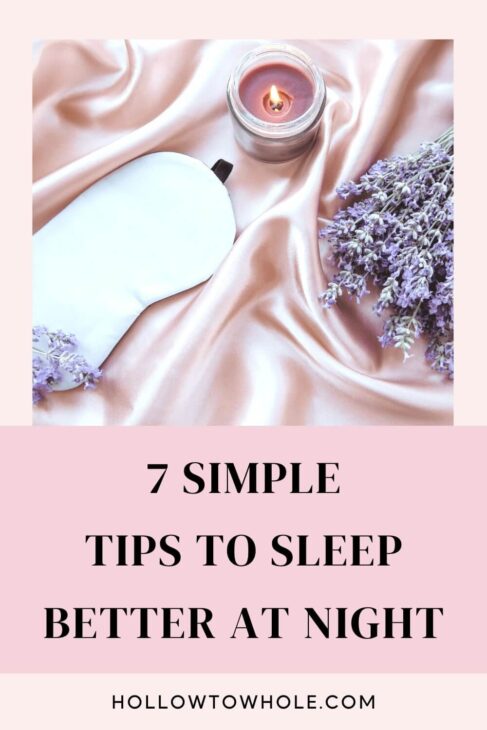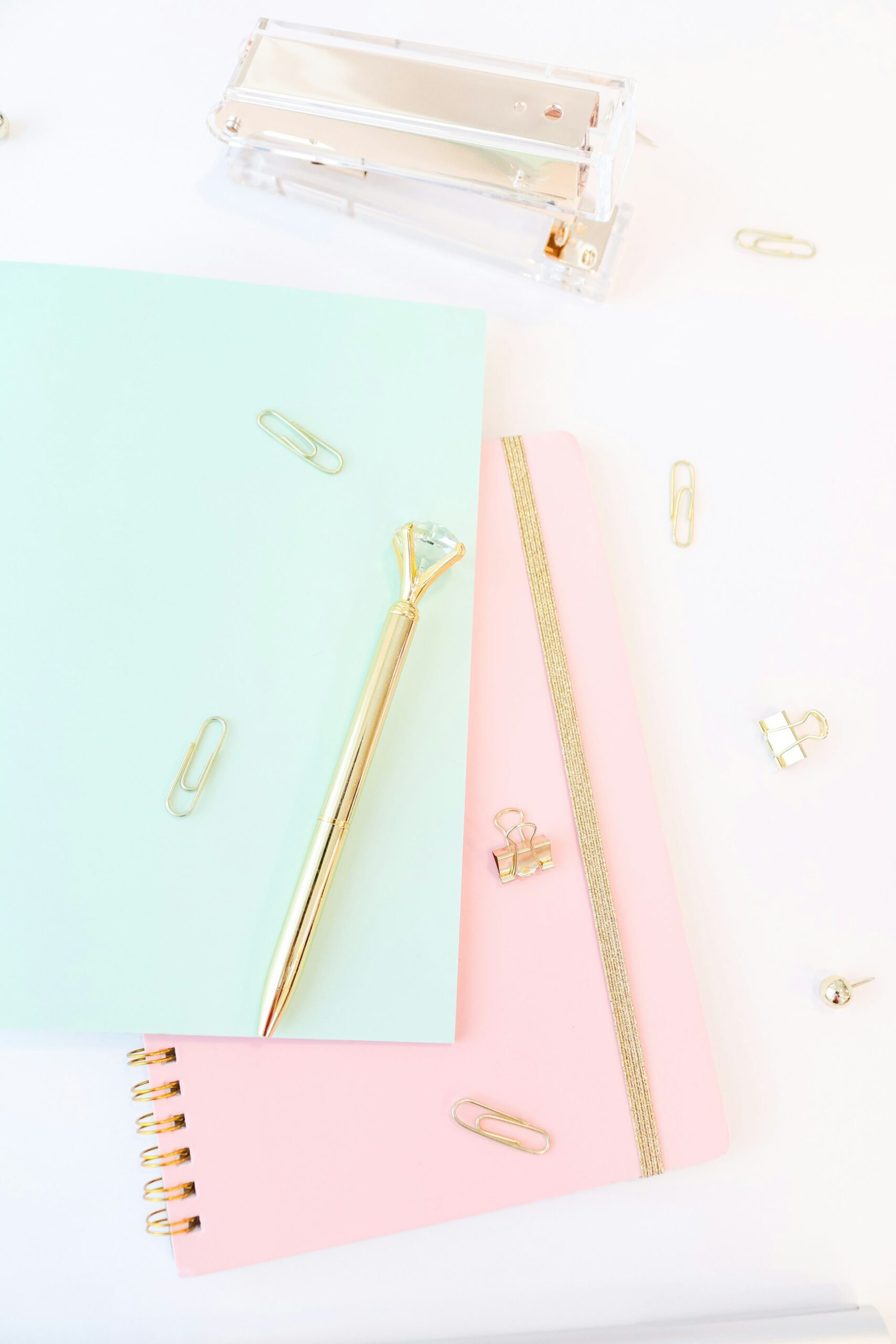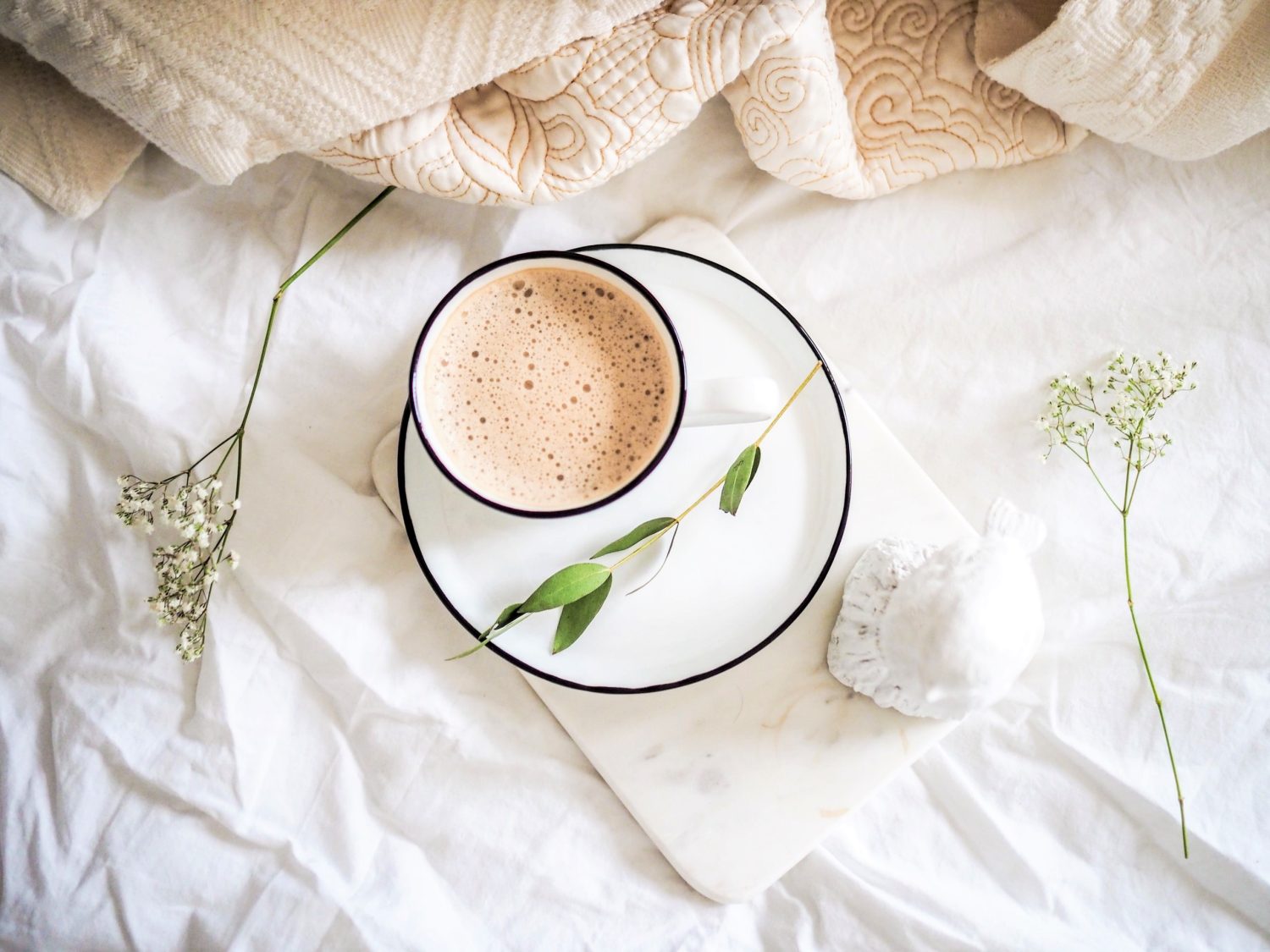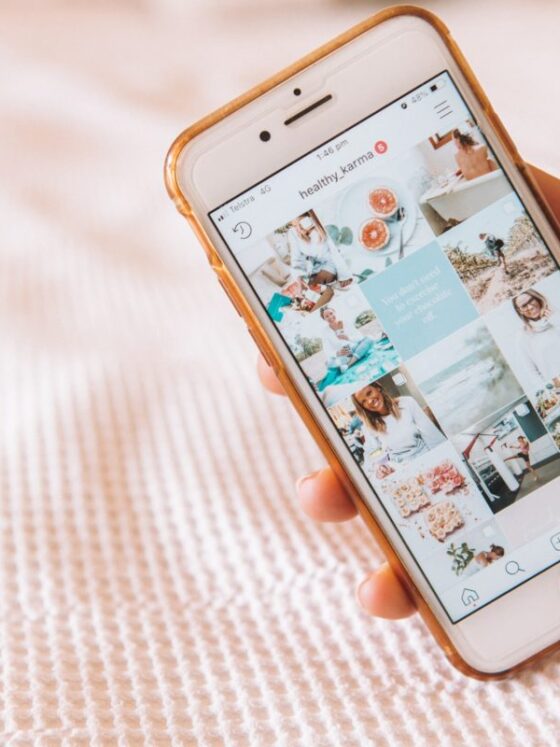Next episode in 5…4…3…2…1…
Stayed up too late watching your favourite TV show? Pulled an all nighter cramming for exams? Working on your business plans until late into the night?
You’re not alone!
We live in a society where being sleep deprived and still being able to function is something to be proud of.
Lack of sleep is like a badge of honour we wear to validate the constant grinding of our lives.
As we’re now beginning to understand, sleep is essential for our bodies or else evolution would have selected against it by now.
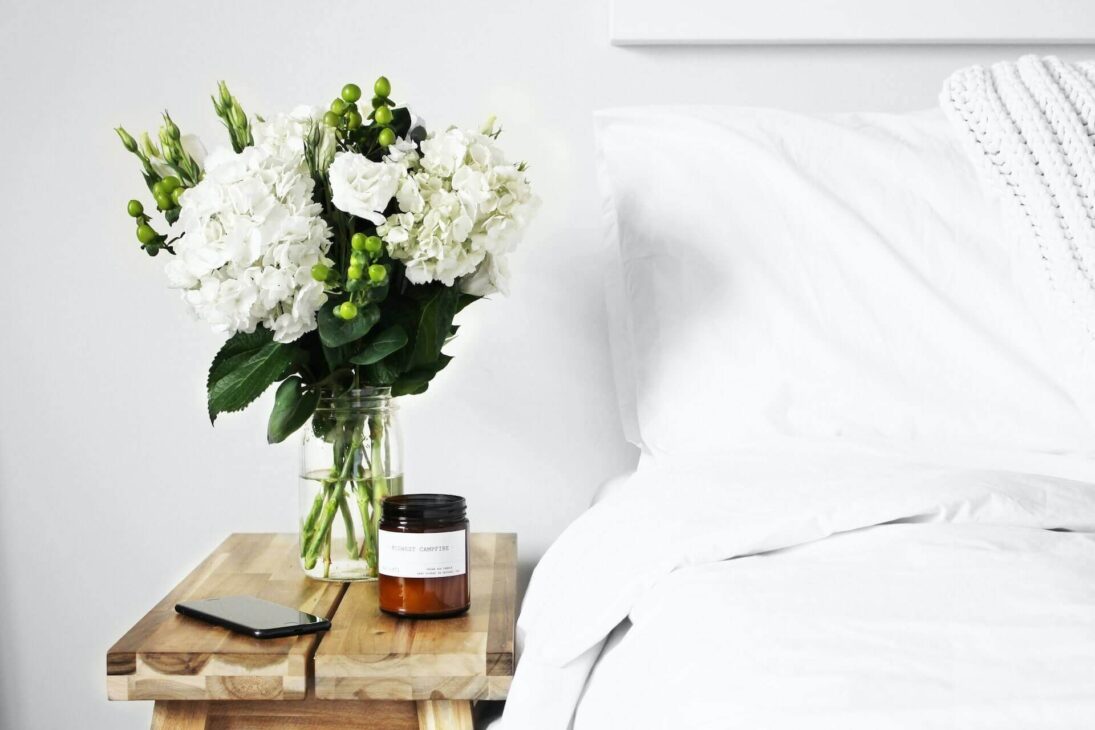
From an evolutionary standpoint, sleep is “the most idiotic thing we could do” says Matthew Walker (author of ‘Why We Sleep’).
We’re not hunting for food, we’re not reproducing and we’re susceptible to predators as we lie there unconscious.
But if sleep was so idiotic, why do we still need it?
Why hasn’t evolution ruled it out by now?
Why does nature give us such hefty consequences when we don’t sleep and why do we need so much of it?
For many years, sleep was misunderstood. It was thought that it’s purpose was to cure sleepiness similar to how eating food is to cure hunger but that tells us absolutely nothing.
Although we’re still in the infant stages of deciphering what sleep is, in the last 50 years, researchers have unveiled more about the function of sleep and how detrimental it is to be sleep deprived.
Telomeres get shortened, risk of diabetes increases, weight loss gets more difficult, cancer cells multiply faster and heart attacks are not uncommon.
In a world where everyone and everything is tempting you to stay up later, here are 7 tips on how you can make sure you get the quality sleep your body needs.
Pause here and save this pin for later!
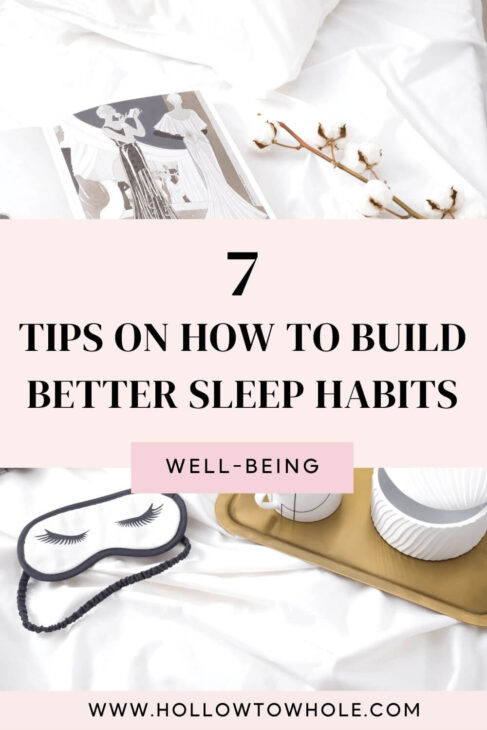
Disclosure: This post may contain affiliate links. If you click and purchase, I may receive a small commission, at no extra cost to you. As an Amazon Associate I earn from qualifying purchases. Learn more here
7 Tips On How To Build Better Sleep Habits
1) Exercise
Exercise has many benefits and sleep is just one of them. Physical activity can also help reduce daytime sleepiness.
I used to experience narcoleptic daytime sleepiness where I would be so drowsy and tired mid-day, I could literally pass out on the spot.
When I added working out to my morning routine, my whole day changed.
Exercising in the morning, especially right when you wake up, can alleviate daytime sleepiness and give you a more restful sleep at night.
Also because you’ve been up earlier in the day, you will naturally become more tired as evening come around.

2) Get Natural Sunlight
We’ve all had those days when we’ve been out in the sun all day and we feel exhausted when we get home.
Sunlight plays a major role in regulating our circadian rhythm.
If you’ve ever flown halfway across the world to a different time zone then you’re familiar with the feeling of jet lag.
Step outside into the sunlight and you’ll feel dramatically different.
You feel jet lagged because your circadian rhythm is off and your melatonin circuits are still turned on.
Exposing yourself to sunlight can help regulate your body’s natural rhythm.
Better still, if you can catch the sunrise and watch the sun gradually come down, that also has major benefits to your circadian rhythm.
Let her sleep, for when she wakes, she will shake the world.
Napoleon Bonaparte
3) Meditate
Personally one of my favorite sleep tips! I like to meditate first thing in the morning and last thing at night.
In the morning, meditation can help you set the tone and intention for the day. You get to choose how you want to show up that day.
In the evening, meditation can help calm your mind and unpack all the emotions you felt that day.
Adding meditation to your evening routine can help put you in a relaxed state, clear your mind and give you a better nights sleep.
4) Journaling
Journaling is similar to meditation as it can help clear your mind and release your emotions.
It helps separate the thoughts running through your mind and gets them out on paper and in front of you.
Journaling at night can help you get your mind off things and stop it from racing around if you’re trying to sleep.
This way, you can disconnect and sleep peacefully.
There are many different types of journals out there that you can try.
There are journals with guided questions that help you reflect on your day as well. Browse around and find one that’s suitable for you.
- Pages include: Top 3 priority list, to-do list, monthly habit tracker, gratitude and reflection section
- Inspired by monks & backed by science
- Free shipping on all orders $50+ with discount code below
5) Avoid Eating
A good rule of thumb is to stop eating 3 hours before bedtime.
When you eat before going to bed, it confuses your circadian rhythm and tells your body to stay awake.
Especially if you’re eating something high in carbohydrates, insulin spikes up and confuses your body as it’s sending your body a signal to get you moving.
Late at night, when you’re relaxing after dinner and watching your favorite Netflix show, that’s when unhealthy food choices are most seductive.
Distracted eating can also cause you to eat on average 500 more calories leading to weight gain.
It’s also important not to confuse hunger with thirst.
Next time, you feel hungry at night, try drinking a glass or water and see how you feel before you reach into your snack cupboard.
Related posts:
Prescription medication and over the counter sleep aids might help you fall asleep fast but they do more harm in the long run.
There are 4 main stages of sleep that you gradually pass through during your sleep cycle.
What medication does is obliterate the first two stages and go right into REM sleep.
Your body might have “slept” but it won’t leave you feeling refreshed upon waking.
Once you stop taking the medication, you feel even worse and may develop rebound insomnia.
If you’re currently using prescription medication to sleep, try holistic alternatives like deep breathing exercises or meditation.
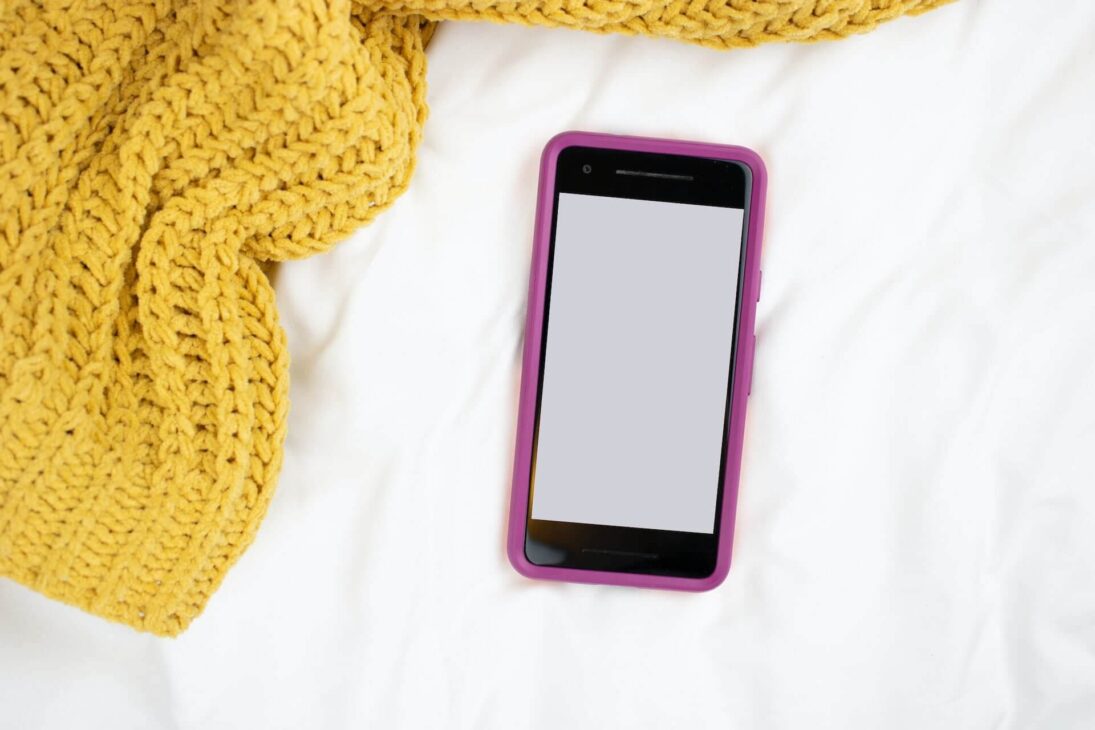
7) No Devices In The Bedroom
Hands down the most difficult thing to do is to leave your device outside of the bedroom.
I am such a culprit of this and I always have to fight myself to put my phone away from my bed at night.
It always seems that when I’m laying in bed trying to sleep, all these wonderful blog post ideas pop into my head and I have to jot it down somewhere and my phone is just so convenient.
That blue screen light from our phones sends a signal to our brain that it’s daytime and keeps us awake.
In fact, any light in general will mess up our body clock so use blue light blocking glasses to prevent this.
No matter how hard it is, try to keep your phone out of your bedroom to get the quality sleep your body deserves.
Thanks for stopping by 
What are some things you do to help you get a good night’s sleep? Share them below!

Save this pin & tap the ❤️ below!
